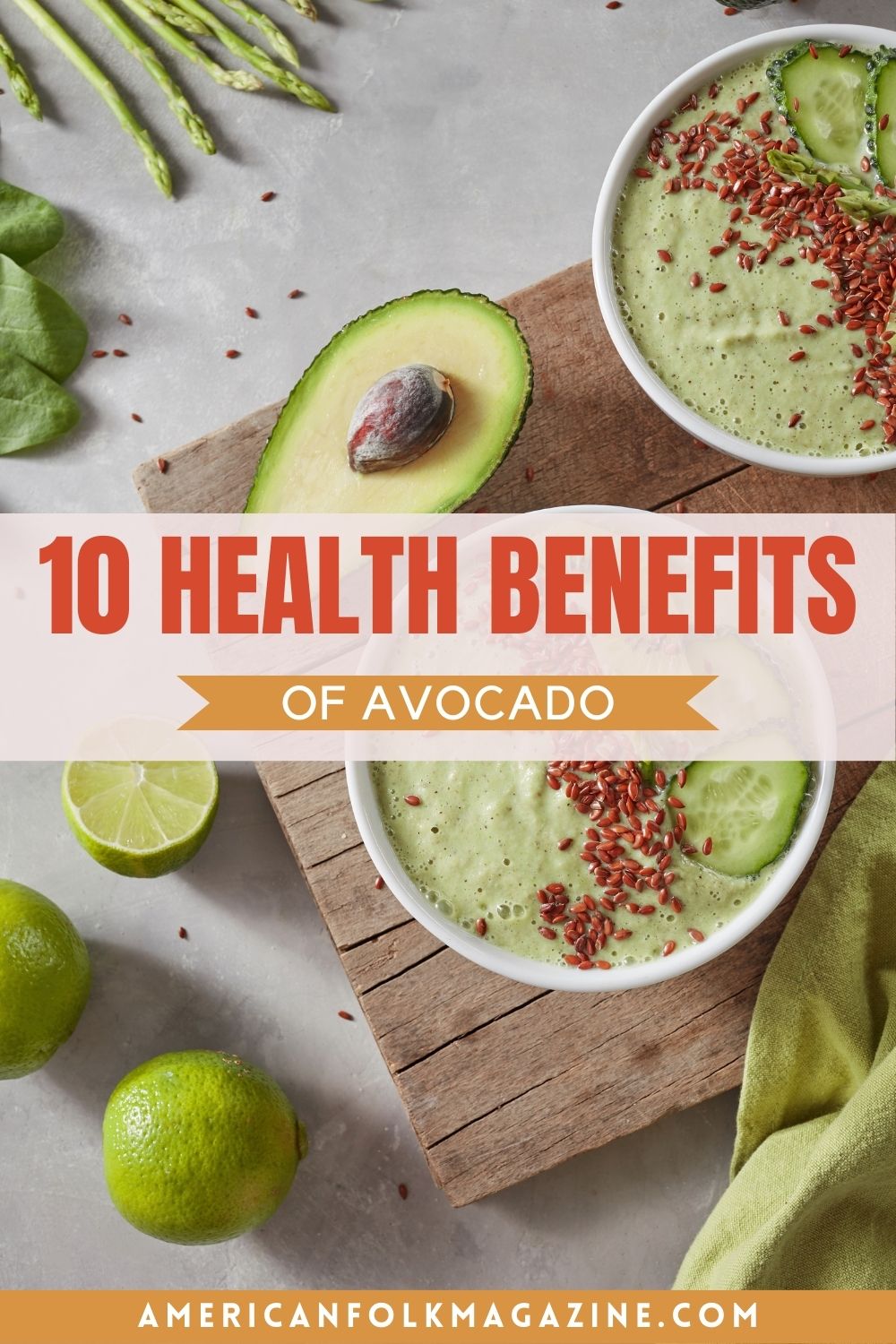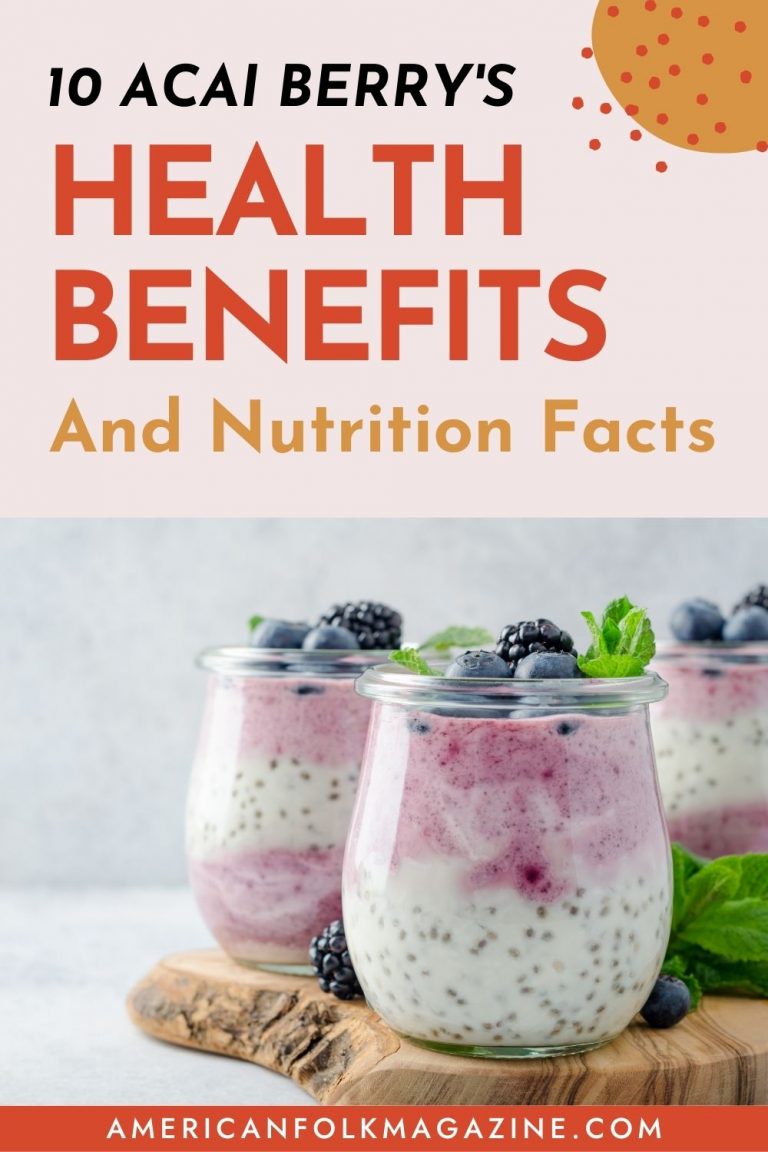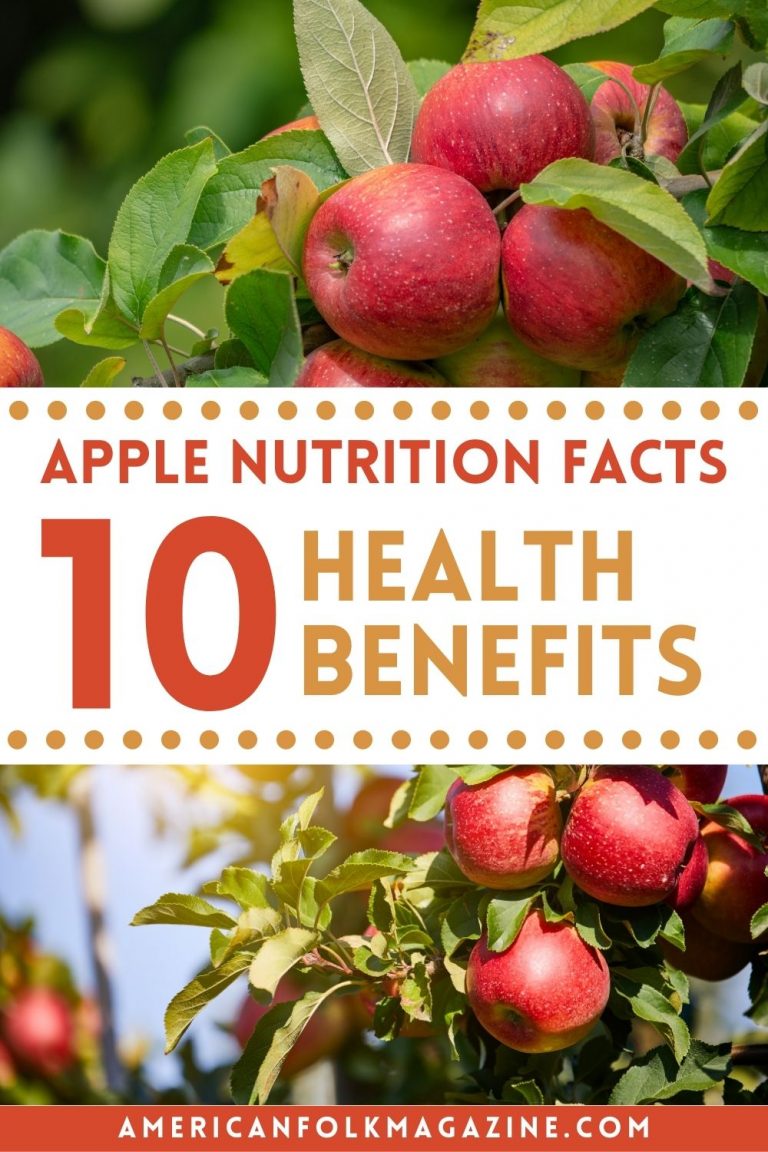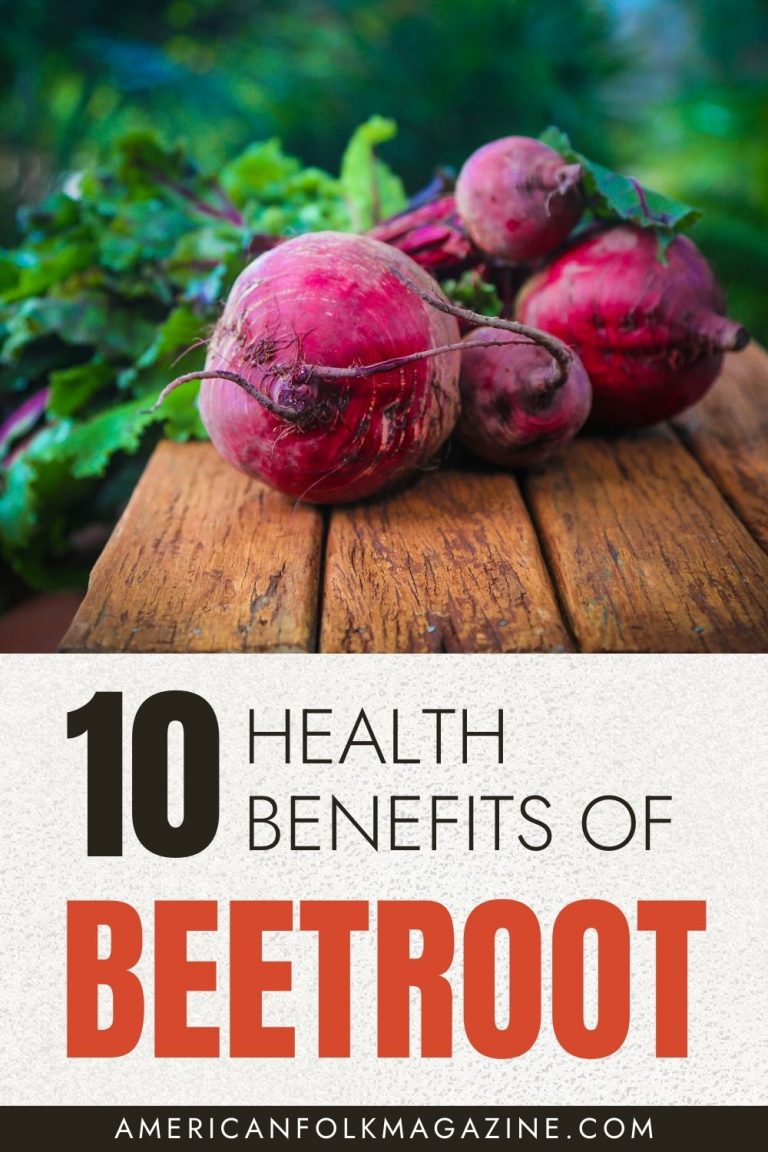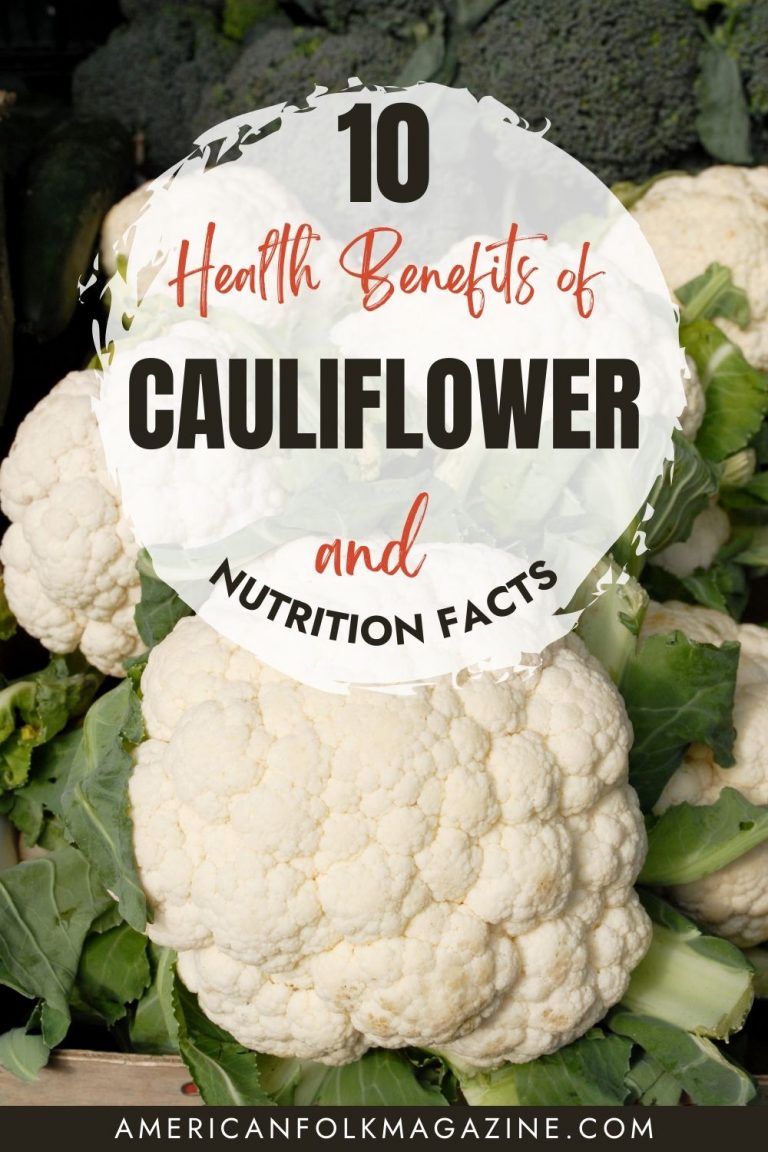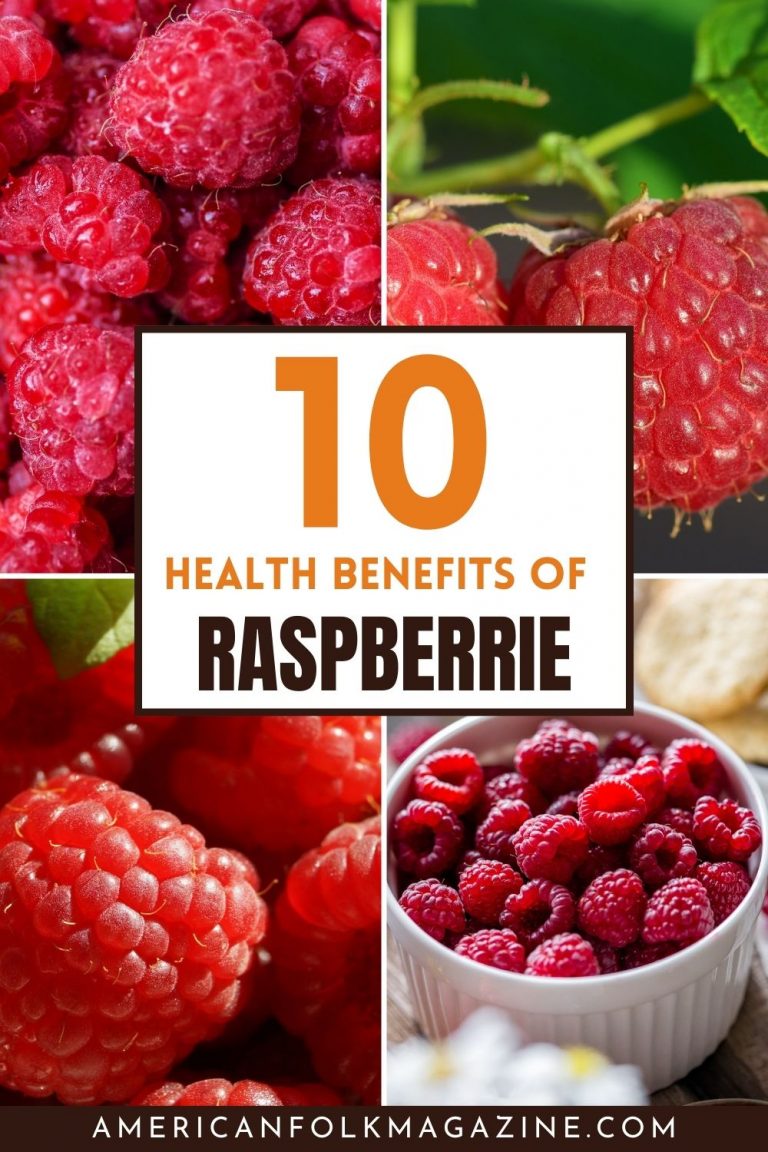Avocados, native to South and Central America, have made a name for themselves worldwide due to their versatile nature and numerous health benefits. Known for their creamy texture and unique, subtly nutty flavor, avocados are enjoyed in a variety of dishes, from salads to smoothies, and most famously, guacamole.
However, these buttery fruits are more than just tasty; they’re a nutritional powerhouse. Avocados are rich in healthy fats, fiber, vitamins, and minerals, making them an excellent addition to any balanced diet. This article will delve into the impressive nutritional profile of avocados and explore the top 10 health benefits they provide.
Nutritional Profile of Avocados
Here’s a nutritional breakdown for an average-sized avocado (about 200 grams):
| Nutrient | Amount |
|---|---|
| Calories | 320 kcal |
| Protein | 4 g |
| Total Fat | 29 g |
| Saturated Fat | 4.3 g |
| Monounsaturated Fat | 20 g |
| Polyunsaturated Fat | 3.6 g |
| Carbohydrates | 17 g |
| Dietary Fiber | 13 g |
| Sugars | 1.3 g |
| Vitamin C | 20 mg |
| Vitamin E | 2.7 mg |
| Vitamin K | 42 µg |
| Vitamin B6 | 0.4 mg |
| Folate | 165 µg |
| Potassium | 975 mg |
| Magnesium | 58 mg |
| Calcium | 24 mg |
| Iron | 1.1 mg |
An average-sized avocado delivers a high payload of nutrients. It contains approximately 320 calories, most of which come from healthy monounsaturated fats that contribute to heart health. Avocados are also an excellent source of dietary fiber, providing about 40% of the daily recommended intake.
Furthermore, they are packed with essential vitamins such as Vitamin K, Vitamin E, and several B-vitamins including folate. They’re rich in Vitamin C, a powerful antioxidant, and they offer more potassium than a banana. Avocados also contain small amounts of magnesium, manganese, copper, iron, zinc, phosphorous, and vitamins A, B1 (thiamine), B2 (riboflavin), and B3 (niacin).
Health Benefit 1: High in Healthy Fats
While it’s true that avocados are high in fat, it’s essential to note that these are heart-healthy monounsaturated fats, specifically oleic acid. This type of fat is known to reduce inflammation and has been linked to a lower risk of heart disease. In addition, the fats in avocados help your body absorb fat-soluble vitamins like A, D, E, and K from other foods when consumed together.
Health Benefit 2: Rich in Dietary Fiber
Avocados are an excellent source of dietary fiber, a vital nutrient known to contribute to weight loss, reduce blood sugar spikes, and promote gut health. A single avocado provides about 13 grams of fiber, which is roughly 54% of the daily recommended intake for women and 36% for men. Consuming foods high in fiber like avocados can support regular bowel movements, promote satiety, and contribute to a healthy digestive system.
Health Benefit 3: Loaded with Antioxidants
Avocados are rich in antioxidants, including carotenoids like lutein, zeaxanthin, and beta-carotene, as well as vitamin C and E. These antioxidants help fight off free radicals in the body, which can cause oxidative stress and damage to cells. Oxidative stress is linked to various chronic diseases, including heart disease, cancer, and neurodegenerative diseases like Alzheimer’s. By incorporating avocados into your diet, you can support your body’s defense against these damaging free radicals.
Health Benefit 4: Supports Heart Health
Avocados are heart-friendly food. They are high in monounsaturated fats that can lower LDL (bad) cholesterol and increase HDL (good) cholesterol levels, contributing to a healthier heart. In addition, avocados are a good source of potassium, a mineral that helps control blood pressure by balancing out the negative effects of sodium. They also contain a substantial amount of dietary fiber, which can reduce the risk of heart disease by promoting healthy blood lipid profiles.
Health Benefit 5: Promotes Healthy Digestion
Thanks to their high fiber content, avocados are excellent for maintaining a healthy digestive system. Fiber aids digestion by adding bulk to the diet, which helps prevent constipation and promotes regular bowel movements. Furthermore, fiber aids in maintaining a healthy gut microbiome, which is crucial for overall digestive health.
Health Benefit 6: Enhances Absorption of Nutrients
Not only are avocados nutrient-rich, but they also help enhance the absorption of certain nutrients. The fats in avocados aid in absorbing fat-soluble vitamins A, D, E, and K from other foods. This means adding avocados to salads or salsas can increase the nutrient value of the entire meal. For example, a study found that adding avocado to salad increased absorption of carotenoids like beta-carotene and lycopene by 2.6 to 15.3 times compared to a salad without avocado.
Health Benefit 7: Supports Weight Management
Avocados can support weight management in a few ways. Their high fiber content aids in making you feel full and satisfied, reducing the need for snacking between meals. Additionally, avocados have a low glycemic index, which means they have minimal impact on blood sugar levels. This can help avoid hunger spikes and crashes that lead to overeating. Some studies even suggest that eating avocados regularly can support weight loss when part of a balanced, calorie-controlled diet.
Health Benefit 8: Good for Vision
Avocados are a great source of two key eye-healthy nutrients – lutein and zeaxanthin. These are carotenoids that are concentrated in the tissues of the eyes where they provide antioxidant protection to help minimize damage, including from ultraviolet light. The monounsaturated fatty acids in avocados also support the absorption of these beneficial antioxidants. So, eating avocados can contribute to maintaining good eye health.
Health Benefit 9: Great for Skin Health
The healthy fats and vitamins in avocados can benefit your skin. Monounsaturated fats help keep the top layer of your skin moisturized, which promotes soft, healthy-looking skin. Vitamins C and E, both powerful antioxidants, can help fight off skin damage from the sun and pollution. Moreover, the high levels of vitamin E in avocados can enhance the skin’s vitality and luminosity.
Health Benefit 10: Regulates Blood Sugar Levels
The monounsaturated fats in avocados can help regulate blood sugar levels. Unlike carbohydrates, fats do not raise blood sugar levels, making avocados a good food choice for people with diabetes. Additionally, the high fiber content of avocados slows the breakdown of carbohydrates in the body, helping to maintain steady blood sugar levels. This makes avocados a healthy food choice for those looking to control their blood sugar.
How to Incorporate Avocados into Your Diet
- Smoothies: Blend avocado into smoothies for added creaminess and nutrient content.
- Salads: Cube or slice avocado to add to salads or as a topping on soups.
- Toast: Spread ripe avocado on whole-grain toast and sprinkle with sea salt and pepper.
- Dips: Make guacamole or an avocado-based dip for raw veggies.
- Baking: Use avocado as a healthier substitute for butter in baking recipes.
- Sandwiches: Avocado slices can add a creamy texture to sandwiches or burgers.
- Sauces: Blend avocados into sauces or dressings for pasta or vegetables.
Precautions and Potential Allergies
While avocados are generally safe for most people, some may be allergic. Symptoms could include hives, itching, redness, or stomach distress. If you suspect you might be allergic to avocados, it’s best to consult with a healthcare professional.
Conclusion
In conclusion, the creamy, delicious avocado is not just a culinary delight, but a nutritional powerhouse offering numerous health benefits. From supporting heart health to aiding in digestion and promoting good skin, avocados are a valuable addition to a balanced diet.
It’s no wonder that avocados are a favorite among nutritionists and health enthusiasts. So, why wait? Start exploring the various ways to incorporate avocados into your diet and enjoy their numerous health benefits. Remember, as with all foods, avocados should be consumed in moderation as part of a varied and balanced diet.
References
- Why is avocado good for you? :medicalnewstoday.com
- 7 Potential Health Benefits of Avocado :healthline.com
- Avocado Nutrition Facts and Health Benefits :verywellfit.com
Pin It In Your Board



